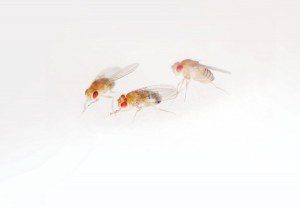By Rebecca Borg
Spinal Muscular Atrophy (SMA) is a neurodegenerative disease that causes motor neurons to deteriorate. These nerves are required for voluntary muscle activity control. Neuronal loss leads to progressive muscle weakness that makes it difficult for one to move and function normally. These devastating consequences make SMA the leading genetic killer of infants, who succumb to the effects of the condition within a few years.
 The underlying cause of SMA is an error in the gene that produces the protein SMN (Survival of Motor Neuron). This fault leads to low levels of SMN, which is essential to assemble the building blocks required to form the spliceosome that edits molecules carrying the DNA code to generate proteins. Without significant levels of SMN, spliceosomes are not formed and inaccurate editing leads to malfunctioning proteins, in turn leading to cell death. Correct protein processing is necessary in all cells in the human body. However, the million-euro question is: if this process is so essential, why are only the motor system cells affected?
The underlying cause of SMA is an error in the gene that produces the protein SMN (Survival of Motor Neuron). This fault leads to low levels of SMN, which is essential to assemble the building blocks required to form the spliceosome that edits molecules carrying the DNA code to generate proteins. Without significant levels of SMN, spliceosomes are not formed and inaccurate editing leads to malfunctioning proteins, in turn leading to cell death. Correct protein processing is necessary in all cells in the human body. However, the million-euro question is: if this process is so essential, why are only the motor system cells affected?
Attempting to resolve the mysterious puzzle revolving around SMA, Rebecca Borg (supervised by Dr Ruben J. Cauchi) used the fruit fly (Drosophila melanogaster) as a model organism. Fruit flies share more than 70% disease-related genes with humans, and they are easy to breed and manipulate making them ideal for researchers to study human disease.
Borg wanted to find out how the proteins that work with SMN operate to build the spliceosome. She used molecular techniques to remove or over produce these proteins. Then she observed what effect this had on the fruit fly’s motor system. She studied their behaviour and death rate. Borg’s results showed that abnormal amounts of these proteins led to more deaths, muscle defects, and abnormal movements. More studies are required to unravel the link between SMN, the spliceosome, and the neuromuscular defects observed in SMA, with the hope of bringing us closer to controlling or treating this devastating condition.





Comments are closed for this article!